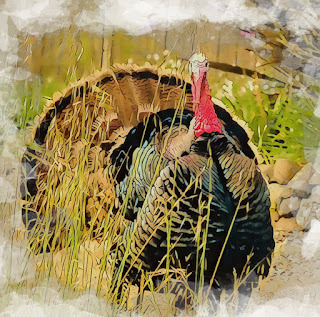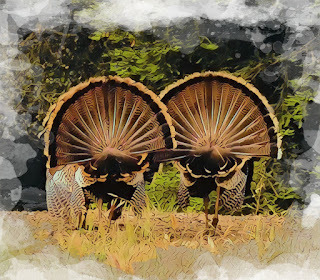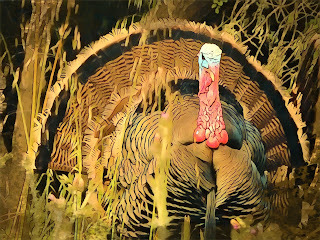R.L. Swihart's Blog, page 53
December 17, 2022
Tolstoy's Resurrection
Nekhludoff looked at the prisoners. They whose fate was being decided still sat motionless behind the grating in front of the soldiers. Maslova was smiling. Another feeling stirred in Nekhludoff's soul. Up to now, expecting her acquittal and thinking she would remain in the town, he was uncertain how to act towards her. Any kind of relations with her would be so very difficult. But Siberia and penal servitude at once cut off every possibility of any kind of relations with her. The wounded bird would stop struggling in the game-bag, and no longer remind him of its existence.
December 12, 2022
Camus' The Fall
Rereading The Fall.
If pimps and thieves were invariably sentenced, all decent people would get to thinking they themselves were constantly innocent, cher monsieur. And in my opinion—all right, all right, I’m coming!—that’s what must be avoided above all. Otherwise, everything would be just a joke.
December 7, 2022
Red-breasted Sapsucker
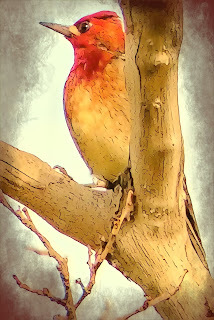
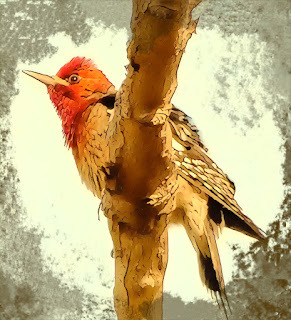
Red-breasted Sapsucker @ Ken Malloy Regional. There and gone again in a previous visit. This time he landed in a tree (while I was shooting snow geese) and gave me two shots.:) Gotta love the red.
#rlswihart13 #lacounty #kenmalloy #sapsuckersofinstagram #sapsuckers #redbreastedsapsucker #nature #beauty #poetry #readmorepoetry2022 #ukraine 🇺🇦
November 30, 2022
Dag Solstad: Art & The Patina of Time
The essential thing to recognize, and enjoy, was the noble patina which rested on a work of art which had lasted beyond its own century. “That is also historical awareness. Nothing else is in our power, and that is enough,” maintained his colleague.
White-tailed Kite

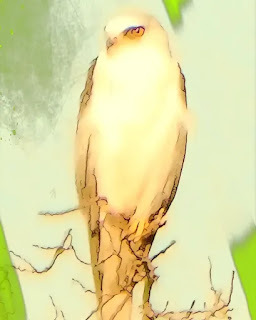
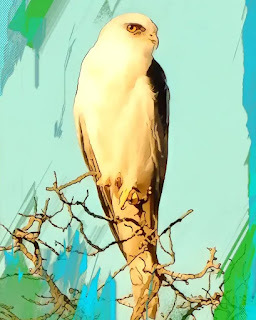
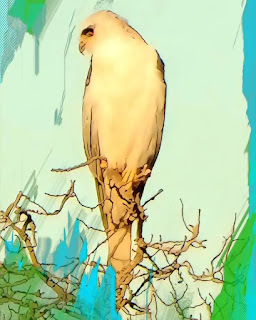
White-tailed Kite @ Harriett Wieder Park in Huntington Beach CA.
#rlswihart13 #huntingtonbeachca #harriettwiederpark #kitesofinstagram #whitetailedkite #nature #beauty #poetry #readmorepoetry2022 #ukraine 🇺🇦
Dag Solstad's Professor Andersen's Night
I can say that, being a professor of literature, and say it to you, my colleague. My nerves shriek in dread at the thought of no longer possessing a historical consciousness, because it means that our day and age will disappear along with us, so when we stage Ibsen at the National Theater, my nerves relax, because if we can stage a play from the last century in one of the country’s finest buildings, with extensive publicity and often to a full house, then the coming generations may regard us in the same light. But it isn’t Ibsen’s work we perform, it’s Ibsen’s reputation. To the work as such, we are more or less indifferent, yes we are, now barely a hundred years after it was written. It’s the stage director’s work we see performed, Stein Winge’s or Kjetil Bang-Hansen’s. It’s Winge’s work and Ibsen’s reputation. My stomach churns in protest at the thought of there being no reputation so great that it can’t survive a hundred years. We want to have immortal works, but do such things exist, for us? Ibsen’s best plays are just barely a hundred years old, we call them immortal already, but are they? Even now we can see how difficult it is to make them seem relevant to us. On stage they have to be modernized and made contemporary, so that we will experience something so-called great while watching them, and even then it doesn’t succeed, as a rule. And as drama to be read? Occasionally I think, after having read through and studied, for instance, Ghosts: well, was that all? Was there nothing else? Was this the most outstanding accomplishment of the 1880s, was this the most outstanding intellectual accomplishment in Europe in the nineteenth century? Certainly it’s good, but is it really the most outstanding achievement that can be accomplished? It will probably turn out that it is, but my question still remains: was that all? Is there nothing else? I have actually studied Ghosts for years, and know that it’s perfect. Yes I am and will continue to be impressed by what it is, perfect, but nonetheless I ask: was that all? Was that it? I am not stirred by it. I’m not shaken. Not like the audience when it was performed for the first time, as a contemporary event.
November 23, 2022
Tom Turkeys from Cambria CA
November 22, 2022
Rereading Tolstoy's Kreutzer Sonata
"I was beside myself. I accused her of indelicacy. She made the same accusation against me, and the dispute broke out. In her words, in the expression of her face, of her eyes, I noticed again the hatred that had so astonished me before. With a brother, friends, my father, I had occasionally quarrelled, but never had there been between us this fierce spite. Some time passed. Our mutual hatred was again concealed beneath an access of sensual desire, and I again consoled myself with the reflection that these scenes were reparable faults. "But when they were repeated a third and a fourth time, I understood that they were not simply faults, but a fatality that must happen again. I was no longer frightened, I was simply astonished that I should be precisely the one to live so uncomfortably with my wife, and that the same thing did not happen in other households. I did not know that in all households the same sudden changes take place, but that all, like myself, imagine that it is a misfortune exclusively reserved for themselves alone, which they carefully conceal as shameful, not only to others, but to themselves, like a bad disease.
November 15, 2022
Gorky's One Autumn Night
Almost at the same moment I felt two little arms about me — one of them touched my neck and the other lay upon my face — and at the same time an anxious, gentle, friendly voice uttered the question: “What ails you?” I was ready to believe that some one else was asking me this and not Natasha, who had just declared that all men were scoundrels, and expressed a wish for their destruction. But she it was, and now she began speaking quickly, hurriedly. “What ails you, eh? Are you cold? Are you frozen? Ah, what a one you are, sitting there so silent like a little owl! Why, you should have told me long ago that you were cold. Come … lie on the ground … stretch yourself out and I will lie … there! How’s that? Now put your arms round me?… tighter! How’s that? You shall be warm very soon now… And then we’ll lie back to back… The night will pass so quickly, see if it won’t. I say … have you too been drinking?… Turned out of your place, eh?… It doesn’t matter.” And she comforted me… She encouraged me. May I be thrice accursed! What a world of irony was in this single fact for me! Just imagine! Here was I, seriously occupied at this very time with the destiny of humanity, thinking of the re-organisation of the social system, of political revolutions, reading all sorts of devilishly-wise books whose abysmal profundity was certainly unfathomable by their very authors — at this very time. I say, I was trying with all my might to make of myself “a potent active social force.” It even seemed to me that I had partially accomplished my object; anyhow, at this time, in my ideas about myself, I had got so far as to recognise that I had an exclusive right to exist, that I had the necessary greatness to deserve to live my life, and that I was fully competent to play a great historical part therein. And a woman was now warming me with her body, a wretched, battered, hunted creature, who had no place and no value in life, and whom I had never thought of helping till she helped me herself, and whom I really would not have known how to help in any way even if the thought of it had occurred to me.
November 13, 2022
R L Swihart's Here We Go 'Round
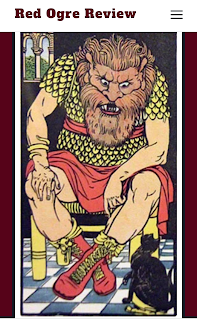
My poem "Here We Go 'Round" came out @ The Red Ogre November 1. Something about childhood. Ideas. Roses of all kinds.:)
Give it a whirl!

